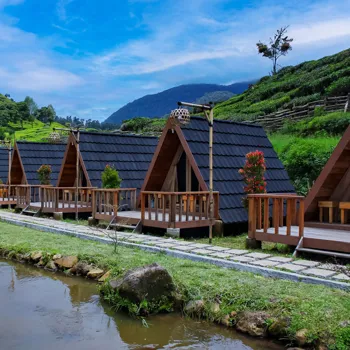Unveiling the Secrets of Sustainable Travel: 9 Tips for a Positive Impact. Dive in for conscious exploration!
Namaste, globe-trotters! Ready to see the world and make it a better place while you're at it?
Sustainable travel isn't just a buzzword; it's a way to explore our beautiful planet responsibly. It's about minimizing your environmental impact and supporting local communities.

So, ditch the guilt and embrace conscious travel! Let’s dive into nine simple tips to make your next trip a truly positive experience, both for you and the places you visit.
Pack Light, Travel Right:
Overpacking is a common travel sin. More luggage means more weight, which translates to higher fuel consumption for planes and trains. Think about it practically. Do you really need five pairs of shoes for a week-long trip? Probably not!
Plan your outfits in advance and choose versatile clothing items that can be mixed and matched. Opt for lightweight, quick-drying fabrics that are easy to wash on the go. If possible, carry a reusable shopping bag and water bottle – you'll avoid single-use plastics and save money, too!
Instead of buying travel-sized toiletries, refill smaller containers from larger bottles at home. Consider packing solid toiletries like shampoo bars and toothpaste tablets – less plastic, less weight, and eco-friendlier!
Remember, every little bit helps reduce your carbon footprint and ensures a more comfortable journey. A lighter bag is also easier to manage, leaving you more energy to soak in the sights and sounds of your destination.
Choose Eco-Friendly Accommodation:
Where you stay can significantly impact the environment. Look for hotels, guesthouses, or home stays that are committed to sustainable practices. This could include using renewable energy, conserving water, reducing waste, and sourcing local products.

Many accommodations now have eco-labels or certifications that indicate their commitment to sustainability. Check websites like TripAdvisor or Booking.com for eco-friendly accommodations filtered by your desired location. When you arrive, be mindful of your resource consumption.
Turn off lights and air conditioning when you leave your room, take shorter showers, and reuse towels. Consider staying in locally owned guesthouses or homestays to support the local economy directly.
You'll often get a more authentic and personal experience, and your money will directly benefit the community. Ultimately, choosing eco-friendly accommodation is a powerful way to support responsible tourism and minimize your impact.
Embrace Public Transport and Slow Travel:
Ditch the taxis and private cars whenever you can. Public transport is not only more eco-friendly but also a great way to experience local life. Hop on a bus, train, or metro, and interact with the people around you. In many cities, cycling is also a fantastic option for exploring the sights.
Embrace slow travel by spending more time in fewer places. Instead of rushing from one tourist spot to another, take your time to immerse yourself in the local culture and connect with the community. Consider traveling by train instead of flying whenever possible.
Trains are generally more fuel-efficient and offer a more scenic and relaxed journey. Walkable cities and towns are a joy to explore on foot. You'll discover hidden gems and gain a deeper appreciation for the place.
Also consider using local ride sharing apps if public transit isnt available in that area.
Support Local Businesses, Savour Local Cuisine:
One of the best ways to contribute to sustainable tourism is to support local businesses. Ditch the global chain restaurants and opt for local eateries that serve traditional cuisine. Not only will you get a taste of authentic flavors, but you'll also be supporting local farmers and food producers.

Shop at local markets and artisan shops for souvenirs instead of buying mass-produced items from big retailers. Engage with local craftspeople and learn about their traditions and skills.
By supporting local businesses, you're helping to create jobs, stimulate the local economy, and preserve cultural heritage. Look for restaurants that source their ingredients locally and minimize food waste. Visit local farms or vineyards to learn about sustainable agriculture practices.
Your travel spending can make a real difference in the lives of local people.
Reduce, Reuse, Recycle:
The mantra of environmental responsibility applies to travel as much as it does to everyday life. Reduce your consumption of single-use plastics by carrying a reusable water bottle, shopping bag, and coffee cup. Refuse plastic straws, cutlery, and takeaway containers whenever possible.

Reuse items like towels and bed linens in your hotel room to conserve water and energy. Recycle paper, plastic, and glass whenever facilities are available. Choose products with minimal packaging and opt for reusable or recyclable packaging options. Don't litter!
Dispose of your waste responsibly and encourage others to do the same. Lead by example and show respect for the environment. Remember, even small actions can add up to a big impact.
By practicing the principles of reduce, reuse, and recycle, you can help minimize waste and protect the natural beauty of your destination.
Respect Local Culture and Traditions:
Travel is a privilege, and it's important to be respectful of the cultures and traditions of the places you visit. Learn about local customs and etiquette before you go. Dress modestly when visiting religious sites. Ask permission before taking photos of people.
Avoid loud or disruptive behavior that could offend local sensibilities. Be open to learning about different perspectives and ways of life. Engage with local people and show genuine interest in their culture. Supporting Ethical artisans that create local items.
Avoid cultural appropriation or making fun of local customs. Embrace the opportunity to broaden your horizons and learn from other cultures. Remember, you are a guest in their home, so treat it with respect.
By being a respectful traveler, you can help foster positive relationships and promote cultural understanding. Respecting local cultures means understanding their traditions and customs, and not being arrogant and judgmental.
Offset Your Carbon Footprint:
Flying is one of the most carbon-intensive activities we do. To mitigate the impact of your flights, consider offsetting your carbon footprint by donating to organizations that support renewable energy projects or reforestation efforts.
Choose Sustainable Activities:
Opt for eco-friendly activities that minimize your impact on the environment. Go for hikes in national parks, kayak in pristine waters, or cycle through scenic countryside.
Educate Yourself and Others:
The most important thing is to be aware of the issues and take a responsible action in your travel.
Sustainable travel is a journey, not a destination.

By following these tips, you can explore the world with a clear conscience, knowing that you're making a positive impact on the environment and the communities you visit. Happy travels and Jai Hind!
AI Generated Content. Glance/InMobi shall have no liability for the content














